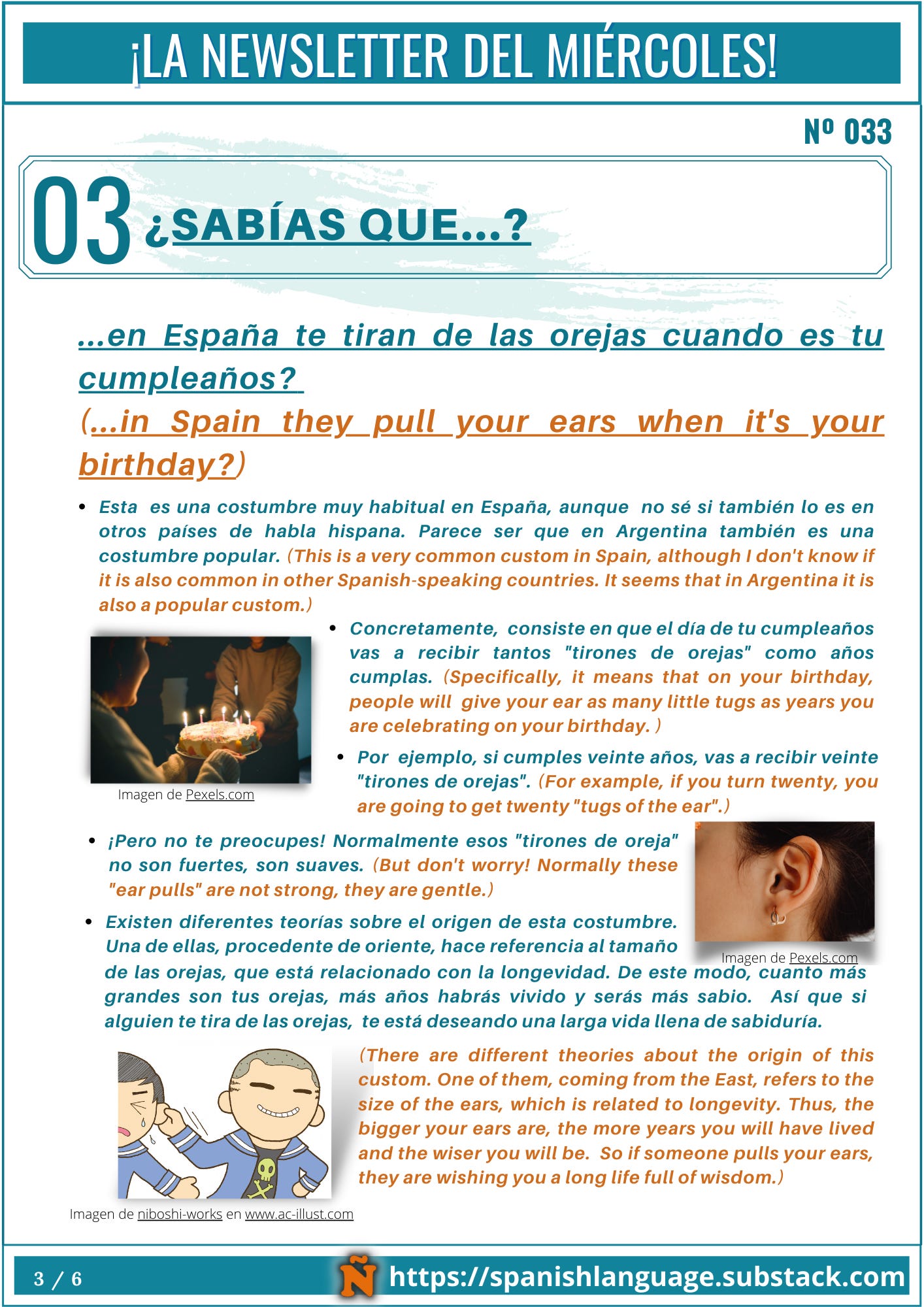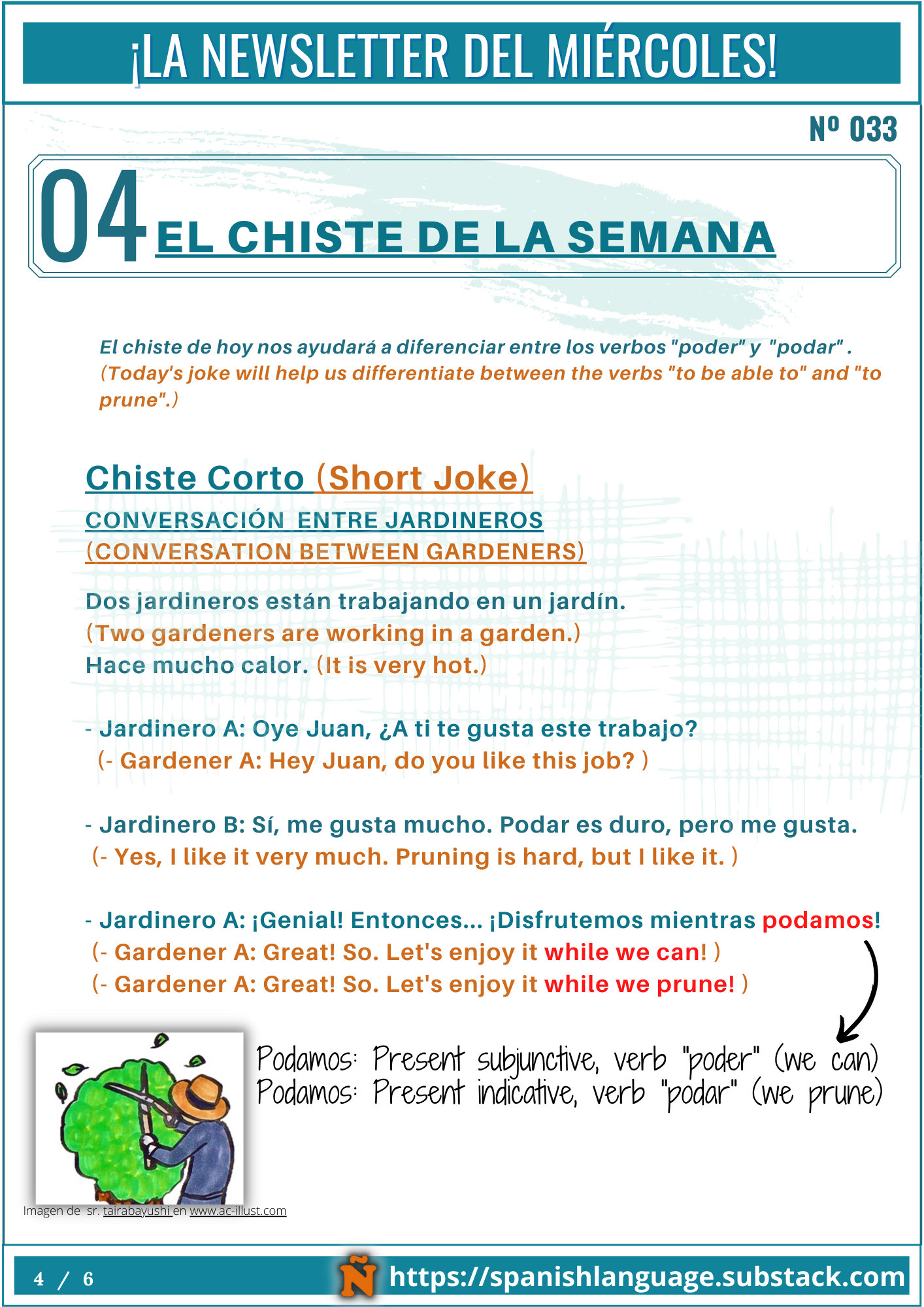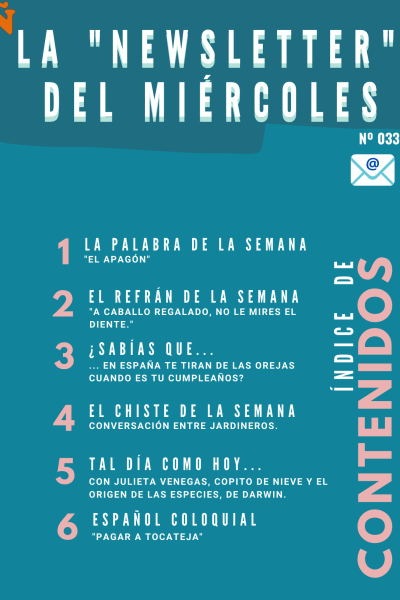You’re reading the free edition of Spanish Language and Spain Culture, a newsletter by Ángeles Fernández, which you can read about here.
Here you can find free information but... if one day you change your mind and decide to support my work... that would be great!
If you value my work and find it useful, please consider subscribing.
¡Hoy es miércoles! (Today is Wednesday! )
Aquí tienes una nueva edición semanal. ¡Espero que te guste!
(Here's a new weekly edition, hope you like it!)
You can download this week’s .pdf versión here:
©Ángeles Fernández (2021) (https://spanishlanguage.substack.com)
You can also read:
Or follow me on:
Interested in Online Spanish lessons?
Or maybe… Interested in learning at your own pace with Yabla?














Me gusta mucho esta newsletter del miércoles! Gracias Angeles por esta lección! Es muy interesante descubrir las tradiciones en común con Italia! Por ejemplo, "a caballo regalado no le mires el dente" en Italiano usamos la misma expresión pero con una pequeña diferencia " a caballo regalado no le mires la boca" :) .... Leyendo la costumbre de tirar de las orejas me ha recordado mi mamá.. siempre lo hizo y ahora extraño mucho!
Hola Angeles! Muchas gracias por tu newsletter! Es muy muy util! como siempre!
Algunas tengo preguntas! como de costumbre! (es igual as como siempre (Above)??
1) Creo que ha HABIDO (translation: I think there has BEEN) - is 'Habido' 'been' or another word? No creo??
2) Ningun = negative form of 'any) e.g meaning 'without any'
3) lleno de =full of (can I add any noun after lleno de e.g full of surprise, full of happiness, full of things?
4) espero que lo soluciunen prono (translation 'I hope they will fix it') - is 'lo' the pronoun for they (I thought it was a singular pronoun)
5)demasiado = too (can I use with other words (not only 'grande/big) but words like I am too full I am too tired (estoy cansada demasiado) (so with abstract and physical nouns)
6) la calidad = the quality (e.g could i say ' la calidad de la comida es mal/no es muy buena)
7) al fin y al cabo = at the end of the day (colloquial phrase?)
8) Paracer ser que (can I also use paracer + que without ser (look like versus ' appear to be')
9) costumbre popular = en mi ciudad / pais no hay muchas custumbres popular
10) una de ellas = one of them?
11) = de este modo = thus (therefore?)any other words?
12) (A ti) te gusta este trabajo ('a ti ' is not always spoken said (is therefore optional in spoken Spanish)
13) es duro = hard (similar a dificile?)
14) en no. 6 en tu newsletter - hay muchas 'tenses' in the structures/sentences
just checking the translation:
e.g he pagado (but the translation implies it is past simple 'but I think it is present perfect (have paid / have bought ( because the spanish includes 'he' which is like the English have + past participle have + bought (whereas just #bought# without have is past simple.
Muchas gracias por tu respuestas!